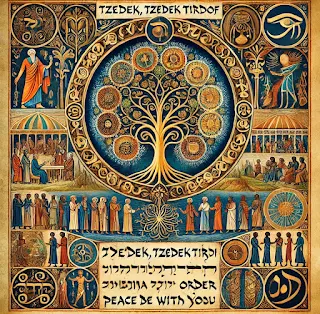A Shame, A Cry, A Call
It’s a shame—
That Christ walked the wilderness, hungry and weary,
Fought the Tempter’s whispers with the Word He carried,
Yet here they stand, stone in hand,
Ready to turn it to bread at the serpent’s command.
It’s a shame—
That Christ bore the cross, love nailed to the tree,
Yet they wield that wood as a weapon, not a plea.
The kingdom they seek is built on sand,
Bow down to power, forget the plan.
It’s a shame—
That Eve reached for the fruit, her heart misled,
Believing the lie that God’s better off dead.
And now they, too, take the serpent’s side,
Blaming the 'Other' for their wounded pride.
But listen—
The Word was never written for swords of hate,
Nor for thrones built on the backs of the desolate.
It was sung in the streets, lived among the least,
A table for all, a world of peace.
So rise—
Shake off the dust, let the foolery fall,
This is the cry, the battle call.
Not to conquer, but to heal the divide,
To see Christ’s face where the weary reside.
It’s not too late—
To trade stone for bread, hate for grace,
To find in the stranger the Saviour’s face.
The cross still stands, the Word still speaks,
For the poor, the broken, the humble, the meek.
Will they see?
Or will they wait for the Tempter’s snare,
Trading the Kingdom for empty air?
It’s a shame—but there’s hope, still near,
If hearts will break, and ears will hear.


